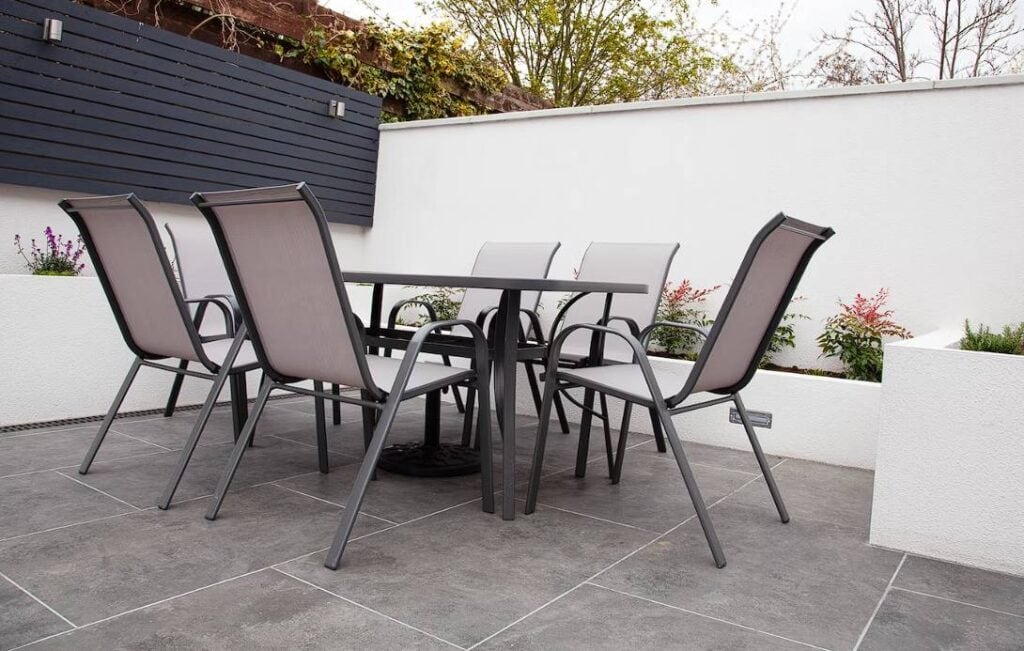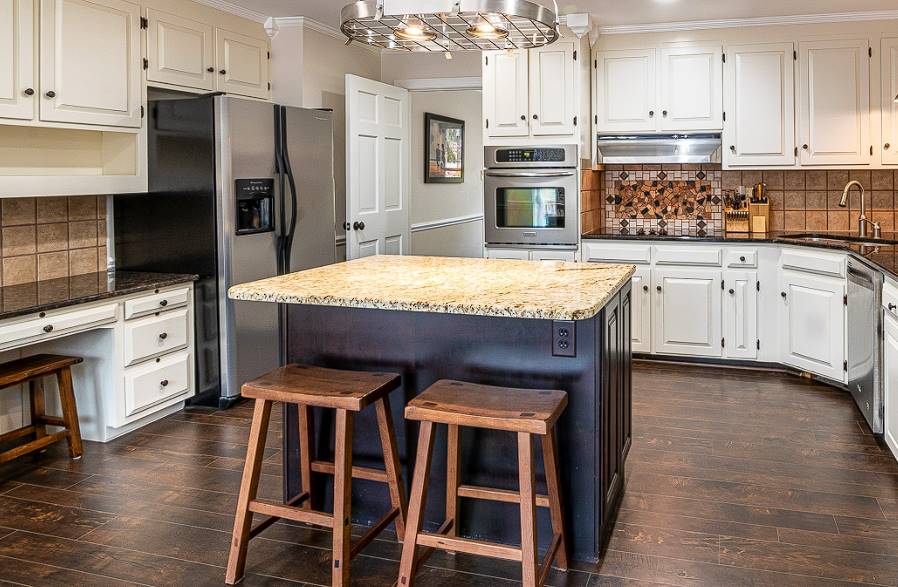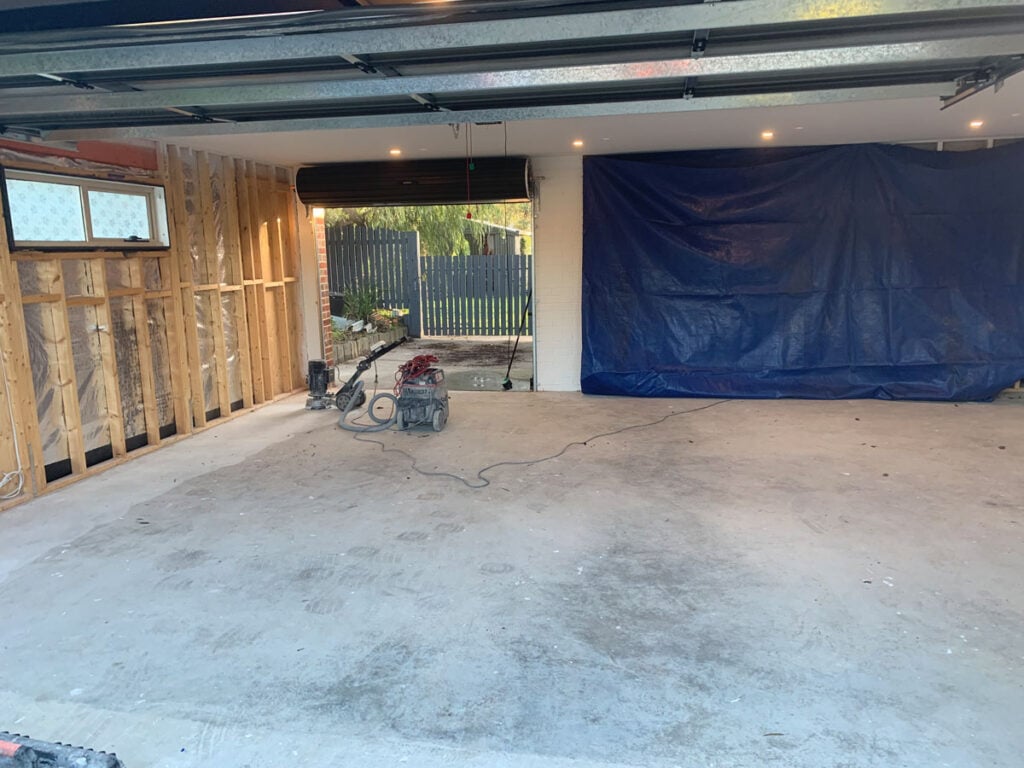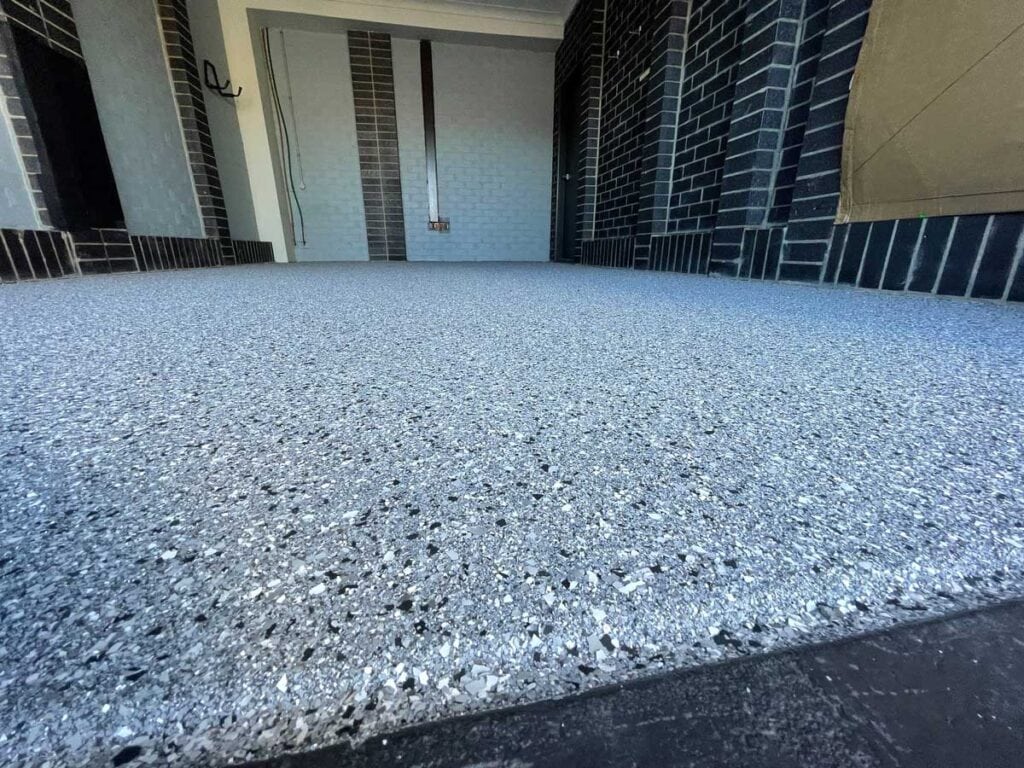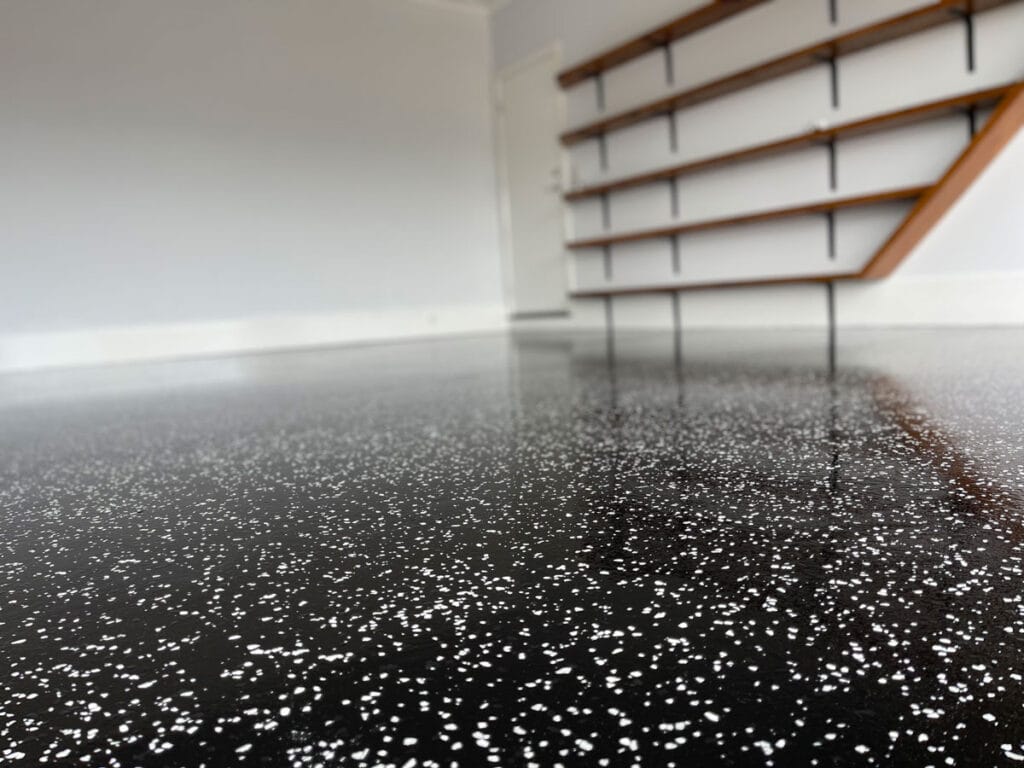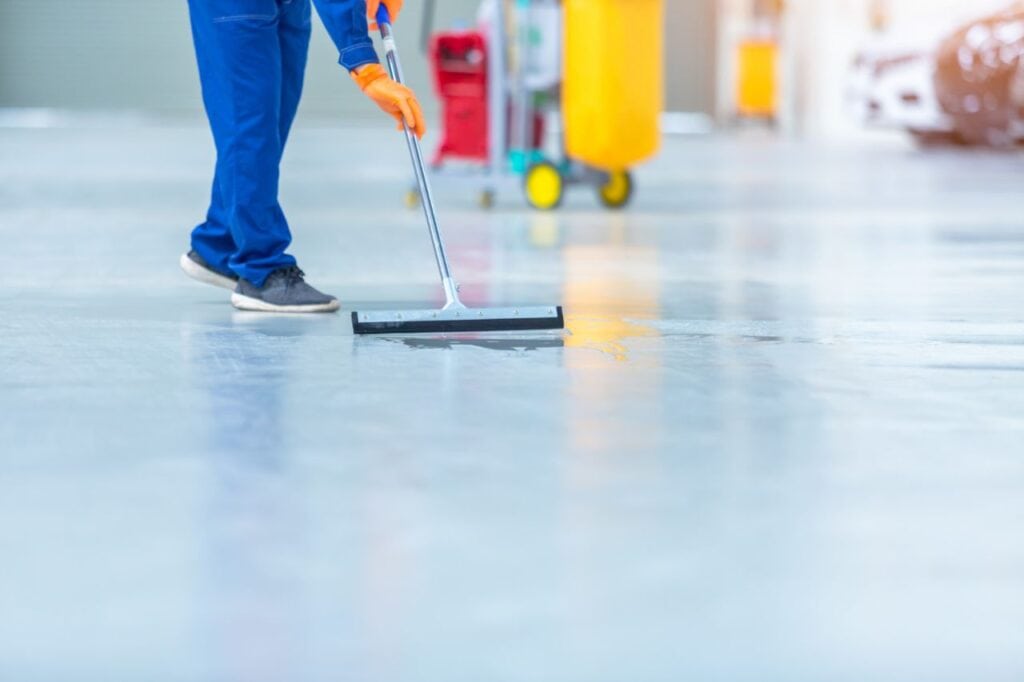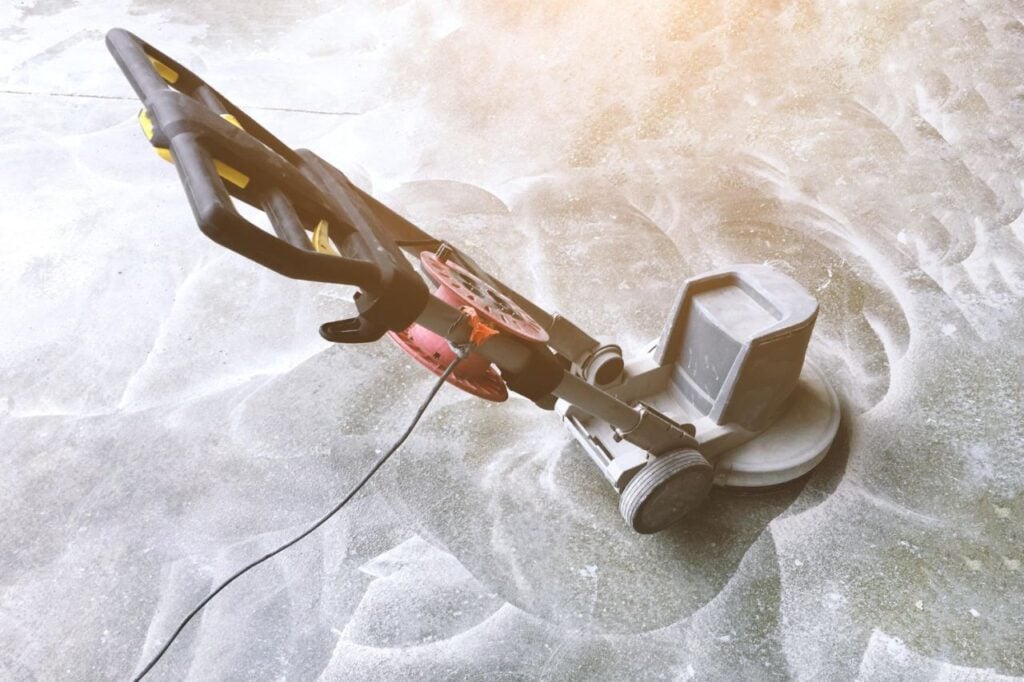When it comes to flooring options, there is a wide range to choose from. If you're seeking a highly durable material that can withstand heavy use and endure over time, consider epoxy or tile flooring.
While tile flooring may require the expertise of commercial flooring specialists for proper installation, epoxy flooring offers a slightly different approach. Depending on your specific requirements and preferences, you may wonder which flooring option best fits your needs. Perhaps you've been considering ceramic tile, but it's important to reassess whether it is the most suitable choice for your project.
Although ceramic or porcelain tiles are popular choices, epoxy flooring stands apart as it is created using multiple resin layers. Depending on your specific needs and preferences, tiles and epoxy flooring can be viable options for your upcoming project.
Suppose you're seeking an exceptionally durable flooring solution that withstands heavy use and is easy to clean. In that case, epoxy-coated floors may be the ideal choice to enhance your space. To find the best epoxy floor coating or other related services, conducting an online search can lead you to reliable options.
Epoxy Flooring or Home Tiles?
If you're contemplating a flooring update, you're probably grappling with choosing which floor type to go for. Regarding durability, aesthetics, and affordability, you might wonder if epoxy flooring surpasses tiles as the superior option.
Epoxy floors present an innovative and distinct method of transforming your floors into resilient, low-maintenance, safe, enduring, and visually appealing surfaces. But how do you make a decision when pitting epoxy against traditional tiles?
Should you venture toward trendy and durable epoxy or opt for the timeless allure of classic ceramic tiles? To assist you in arriving at a well-informed conclusion, we'll explore the comparative results of each product, allowing you to discern better which one suits your needs.
Firstly, what is epoxy flooring?
Resin and a chemical that makes things hard are assembled to make epoxy flooring. The chemical reaction makes the mixture into a solid surface that is very tough to things that would damage other floors. Because of this, epoxy flooring is often used in medical, industrial, business, and even home garages. People also use new kinds of cement instead of tiles in outdoor and living spaces.
Epoxy vs. Tiles: Overall Cost
Tiles and concrete are at the very high end of the price range for flooring materials. The final price will depend on factors like the quality of the tile or epoxy you choose and the labour rate of the contractor you hire. Tiles are generally agreed upon to be more expensive initially due to the expense of hacking up the old floor, but to require less maintenance and repairs over time. There are two perspectives from which you can choose the one that is most beneficial monetarily to your house.
Durability
Regarding how long it lasts, no tile comes close to concrete flooring. Did you know that epoxy flooring is more robust than concrete? Epoxy can handle heavy-duty wear and tear, like when vehicles, toolboxes, or other heavy things are dragged over it or dropped on it. This is a big deal if you want to put tiles in garages or other high-traffic places where they might break or chip. Epoxy is not, however, impossible to break. It can still chip or crack if mistreated, and it is not suitable for damp or moving around surfaces.
Grime, Stain & Maintenance
If you want a white floor but are worried about keeping it that way, epoxy flooring could be the answer. Because epoxy flooring is immune to bleach, gas, oil, and most other chemicals and materials, you wouldn't have to worry about stains. When ceramic tiles are first put in, they may look clean and shiny, but over time, dirt and grime build up in the grout lines, making it hard to clean because bacteria grow there.
Epoxy floors don't have seams, so germs can't grow in them. Also, epoxy floors are easy to clean; you only have to sweep and mop.
Epoxy vs. Tiles for Health and Safety
The fact that epoxy works to prevent slips even when water is present has made it a popular flooring choice, but new innovations in tile flooring have led to the introduction of technologies like Slip-Stop tiles, which achieve the same thing. When thinking about health, tiles are preferable because they are non-toxic and occur naturally. However, any epoxy flooring can release harmful chemicals when cut, sanded, or burned, and all of them give off at least some volatile organic compounds (VOCs). To play it safe, go with the tile. When thinking about things like cleanliness and safety, tile flooring is our top pick.
Installation, Repairs and Removal
Setting up an epoxy floor can take longer than tiling because it involves a significant amount of preparation to make the existing flooring suitable for the application of epoxy. Additionally, applying the epoxy coating takes several days because of the drying time required; therefore, installing an epoxy floor can take longer than tiling.
Altering the colour or design of the floor and removing it may be a labour- and time-intensive and expensive process once the epoxy has been put in. Epoxy flooring, similar to tile floors, can become dangerously slippery when wet; therefore, anti-slip additives need to be applied during the installation process of the floor to make the surface safer when wet.
Epoxy vs. Tile Surfaces & Design
There is a wide variety of both tile and epoxy flooring designs. Complex epoxy creations can be made to mimic the appearance of tiles and other materials. Tiles, on the other hand, can be digitally printed to mimic the look and feel of natural materials like stone and wood.
The Pros and Cons of Epoxy and Tile Flooring
Advantages of Epoxy Flooring
Resin is used to make epoxy floors. This makes it very resistant to chemicals, water, heavy items, dropped items, and regular damage that would hurt other kinds of floors.
This makes it an excellent treatment for a garage floor because it is strong and lasts longer than other floor coverings.
Many types of floors last less time than epoxy coating. If put in the right way, it can last many years without cracking or splitting. It is often used in business and industrial settings because it lasts a long time and is strong.
Epoxy flooring is an excellent choice for a garage floor because you won't have to take care of it, but it will still look friendly and last for a long time. To keep the area clean, you can sweep or mop it. However, remember that epoxy coating is resistant to dust, dirt, and liquid spots, which other types of flooring can't do.
And since it can withstand the weight of heavy cars or tools and take a hit, it is the best choice for your garage floor.
These include:
- Strong and resistant to wear
- Simple to clean, safe, and adaptable
- Looks clean and well-kept
- No holes and no seams
- Slip-proof, impact-proof, heat-proof, and fire-proof.
- Easy to take care of
- Eco-friendly
Disadvantages of Epoxy
When deciding between cement and tile, you should also look at the cons of each. In some situations, resin won't be the best choice because of the following:
- Strong smells when put in
- It takes a long time to dry out and get hard.
- The process of fitting can take a long time and be messy.
Advantages of Tile Flooring
There are many kinds of tile floors, such as ceramic and stone. Even though there are some excellent things about tile flooring, like choosing from different styles and colours, tiles are far from as good as epoxy flooring.
When picking tiles for your garage floor, you should keep a few things in mind. One of the biggest problems is that tiles break easily if something heavy is dropped. Another problem is that grout has to be cleaned often to keep it from getting stained.
Flexible plastic tiles are another choice. They are more comfortable than ceramic or stone, but they are easily stained and expand and contract in high heat and direct sunlight, so there needs to be room for them to move. Also, they don't look as lovely as concrete floors.
Some of the many good things of tile include:
- Air quality because they don't have any harmful products
- Durable
- High resale value
- Materials that are good for the environment
- Water-resistant
- Easy to take care of
- Different materials, like stone or ceramic
Disadvantages of Tile
Some problems with tile might make you think twice before putting it on your floors.
Some bad things about tile floors are:
- It only takes a little while for the grout within the tiles to get dirty and damaged.
- When heavy things fall, they can crack or chip.
- Some things will get bigger or smaller when heated.
- It's too heavy to place.
Comparing Epoxy vs. Tile
When deciding between concrete and tile flooring, there are a few things to consider. Among these things are:
- Place
- Goal
- Budget
- Preferred Design
Where you want to put down new flooring will directly affect your chosen type. Even though epoxy is excellent for homes and factories, it works better in the bathroom.
Tile is a better choice in the living room if you want to keep the floors clean (especially if you have small children).
Both concrete and tile are solid and last a long time, but depending on what your floor is for, you might not want to use one or the other.
The Bottom Line
Whether you should put down tiles or concrete flooring is up to you. Both tile flooring and concrete flooring have their pros and cons. Choose epoxy flooring if you want a strong floor without grout lines that are easy to clean and inexpensive.
Conclusion
Epoxy flooring is a highly durable material that can withstand heavy use and endure over time. It is created using multiple resin layers and is often used in medical, industrial, business, and home garages. However, it is more expensive than traditional tiles and requires the expertise of commercial flooring specialists for proper installation. To determine which flooring option best fits your needs, it is important to consider durability, aesthetics, and affordability. Resin and a chemical that makes things hard are assembled to make epoxy flooring, which is used in medical, industrial, business, and home garages.
Tiles and concrete are at the very high end of the price range for flooring materials. The final price of tile or epoxy flooring will depend on factors such as the quality of the tile or epoxy and the labour rate of the contractor. Tiles are generally more expensive initially due to the expense of hacking up the old floor, but they require less maintenance and repairs over time. There are two perspectives from which you can choose the one that is most beneficial monetarily to your house: durability, grime, stain & maintenance, and health and safety. Installation, repairs and removal are the most important considerations when choosing a flooring choice.
Epoxy flooring is an excellent choice for a garage floor due to its strength, durability, and ease of maintenance. It is resistant to chemicals, water, heavy items, dropped items, and regular damage, making it an excellent treatment for a garage floor. However, it can become dangerously slippery when wet, so anti-slip additives need to be applied during the installation process. Advantages of epoxy flooring include being strong and resistant to wear, simple to clean, safe, and adaptable, looks clean and well-kept, no holes and no seams, slip-proof, impact-proof, heat-proof, and fire-proof, and easy to take care of. Disadvantages of epoxy include not being eco-friendly, needing to be replaced more often, and needing to be replaced more often.
Resin flooring is not the best choice for garage floors due to its strong smells, long drying time, and messy fitting process. Tile flooring has advantages such as air quality, durability, high resale value, materials that are good for the environment, water-resistant, easy to take care of, and different materials. Tile flooring has disadvantages such as grout getting dirty and damaged, cracking and chipping, and getting bigger or smaller when heated. When deciding between concrete and tile flooring, factors such as place, budget, and preferred design should be taken into account. Epoxy flooring is the best choice for a strong floor without grout lines that is easy to clean and inexpensive.
Content Summary
- Choosing between epoxy or tile flooring for durability and endurance.
- Epoxy flooring offers a highly durable material that withstands heavy use.
- Tiles may require the expertise of commercial flooring specialists for installation.
- Epoxy flooring is created using multiple resin layers.
- Epoxy-coated floors are exceptionally durable and easy to clean.
- Online search can help find reliable options for epoxy floor coating.
- Epoxy flooring surpasses tiles in terms of durability, aesthetics, and affordability.
- Epoxy floors are resilient, low-maintenance, safe, enduring, and visually appealing.
- Epoxy flooring is made by assembling resin and a hardening chemical.
- Epoxy flooring is commonly used in medical, industrial, and garage settings.
- Epoxy flooring is more robust than concrete and can withstand heavy-duty wear and tear.
- Epoxy floors are resistant to grime, stains, and easy to clean.
- Tiles can accumulate dirt and grime in grout lines over time.
- Epoxy flooring prevents slips, while new tile technologies offer similar safety features.
- Tiles are non-toxic and occur naturally, making them preferable for health and safety.
- Epoxy floor installation requires significant preparation and drying time.
- Epoxy flooring can be labor- and time-intensive to alter or remove.
- Both epoxy and tile flooring offer a wide variety of design options.
- Epoxy floors are resistant to chemicals, water, heavy items, and regular damage.
- Epoxy floors are suitable for garage floors due to their strength and low maintenance.
- Epoxy floors are dust, dirt, and liquid spot-resistant.
- Tile flooring offers different styles, colors, and materials.
- Tiles can break easily when heavy objects are dropped.
- Grout in tiles requires frequent cleaning to avoid stains.
- Tile floors are durable, have high resale value, and are water-resistant.
- Tiles can crack or chip when heavy objects fall on them.
- Consider place, goal, budget, and preferred design when choosing flooring.
- Epoxy flooring works well in bathrooms, while tiles are suitable for living rooms.
- Both epoxy and tile flooring have their pros and cons.
- Epoxy flooring is a strong, easy-to-clean, and cost-effective option.
Frequently Asked Questions
Is epoxy flooring more expensive than tile? The answer to whether epoxy flooring is more expensive than tile is no. Tiled floors have been durable for many years and support the sustainable projects of the facilities with many advantages they offer.
Extremely safe – Epoxy is a very safe coating for your hard floors. It's slip-resistant, shock resistant, and less abrasive than concrete and other types of industrial flooring. It's also water resistant and will protect your floor from spills, including harsh chemicals that would harm other types of floors.
Yes! With the correct preparation and use of accurate industrial-grade epoxy resin coating materials, various types of Epoxy Flooring Systems can be applied over most old tiles to give new life to the surface.
Even though epoxy flooring is famous for being durable and long-lasting, it will crack if there is a foundation shift in your home because it is not flexible. Similarly, your epoxy flooring may chip if applied to weak concrete with cracks.
Oxidation turns the epoxy hardener yellowish over time. This starts to happen when the container of the hardener is opened for the first time, and air is allowed to enter. The degree of discolouration depends on the amount of exposure.
